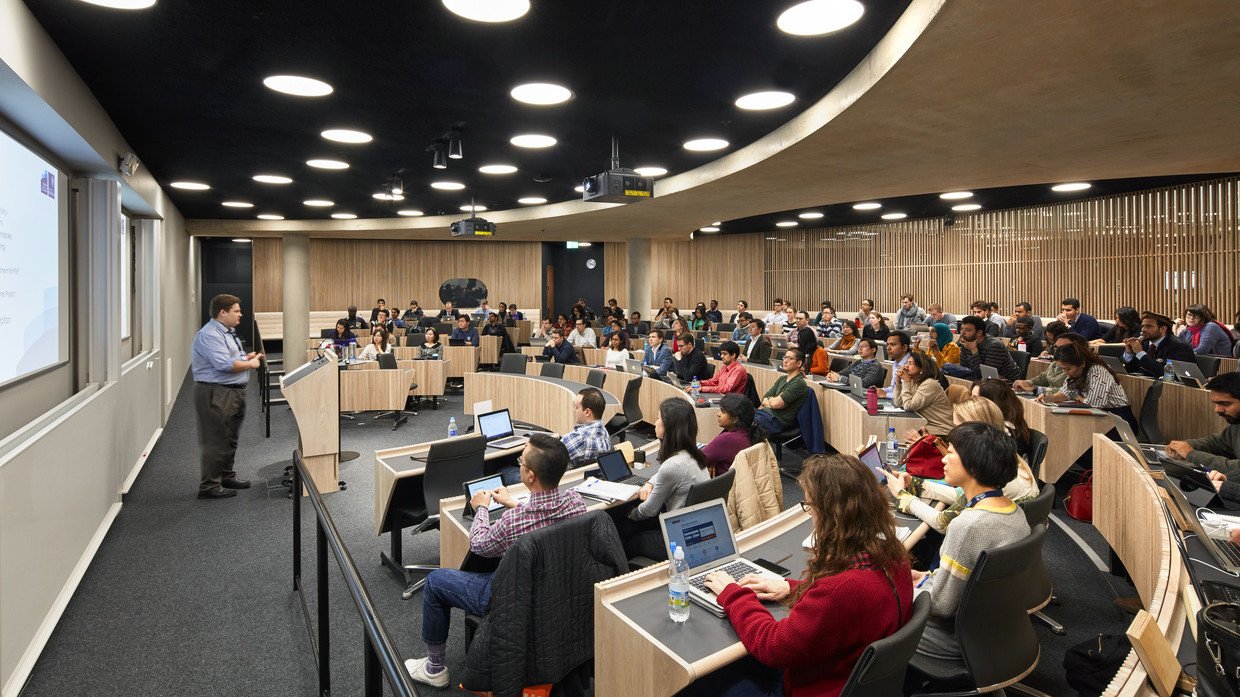Barmy British universities insist English spelling, punctuation, and grammar are not important, it’s the ‘ideas’ that matter, as they lower the bar for everyone to avoid discrimination. This strategy is bad news for ALL students.
Can’t read? Can’t write? Can’t spell? Don’t worry, that doesn’t mean the university degree you imagine you deserve is out of your grasp, thanks to a bunch of woke academic lunkheads determined to drive achievement down to the lowest-of-lowest common denominators to give even the most illiterate mouth-breather a shot at success.
Because, in the name of ‘decolonising the curricula’ we are being asked to swallow the idea that expecting university students to use correct spelling, grammar and punctuation is demanding too much from the poor little darlings, and it risks discriminating against ethnic minorities and those who went to ‘underperforming’ schools, according to the geniuses at the University of Hull.
Also on rt.com Toddlers in UK nurseries need to be taught about ‘white privilege’ because equality is not anti-racist enough, woke report claimsEven more bonkers is the suggestion that to expect students to exhibit English fluency in their work would be “homogenous, North European, white, male, and elite.” An interesting choice of adjectives, to be sure. So woke, that even showing a grasp of the English language is now considered a nationalist, racist, misogynistic characteristic.
Instead, academics at universities from as far apart as London, Hull, and Worcestershire have decided that clear, unambiguous communication in English is not all that important. It’s more about the ideas.
What utter rubbish.
Surely, the very notion of further education is to educate, to learn and improve upon what students already know. If, upon entry, a student is having trouble with the English language, then by the time they complete their degree, they should have overcome their difficulties. After all, isn’t that the point?
Apparently not. Because instead of raising the bar and asking students to aim high to soar over it, universities are being asked to just lower that bar, so everyone can simply step over. The virtue-signalling is doing no favours to anyone.
Examiners at the University of Arts London are actually advised not to correct errors, and are told, “Avoid imposing your own idea of ‘correct English’ on student work – be aware of your own personal preferences.” Like the preference that something be right, for example.
The Office for Students declares that alongside the higher education sector, it needs to be “bold and ambitious” in efforts to reduce the gap between the proportion of white and black students gaining good degrees, as well as cutting drop-out rates. And that’s right, but the answer is not to just make things easier.
Instead, there should be more support, tutoring, mentoring and – if I may be so bold – teaching, to lift everyone’s game. If we need ‘inclusive assessment’ for those at a disadvantage through such conditions as, say, dyslexia, then by all means make adjustments to level the playing field. After all, that’s what inclusivity is all about, isn’t it?
Also on rt.com British universities’ mass-produced ‘anti-racism’ statements show they care more about activism than educationBut let’s get this straight. This is not about helping dyslexics, it’s about ‘decolonising’ the curriculum, as made clear on the Hull website, which uses that very word. Unless, of course, that is a typo.
That aside, the idea that diminishing the academic rigour of university study somehow encourages “a more authentic academic voice, a voice that can communicate complex ideas with rigour and integrity – that celebrates, rather than obscures their particular background or characteristics,” is so far out there, it’s laughable.
If you cannot communicate your ideas, how is anyone expected to comprehend them? Telepathy? Charades?
And while it might lead to a flurry of degrees from universities charging their undergraduates £9,000 a year in tuition fees, once those students graduate and are let loose on the employment scene, they will be in for a rude awakening.
Because no matter how charming or enlightening the ‘authentic’ voice in their student work might have appeared at the time, a CV littered with spelling errors or job-seeking emails peppered with grammatical mistakes gives the impression that their communication skills are not what they should be in the cut and thrust of the workplace.
Anyone, even those without a university degree, can see that claiming it’s unnecessary to have a clear grasp of punctuation, spelling or grammar, because to do so somehow diminishes ‘the voice’, is an argument that simply doesn’t hold water.
Also on rt.com Official: Brits are NOT racist… and the woke are outraged as it ruins the narrative around which they’ve built an entire industryAnd to suggest that using English fluently is somehow “homogenous, North European, white, male, and elite” – all terribly bad things apparently – is so woefully woke it’s enough to make a unicorn trip over a marshmallow rainbow.
Language is all about the clear exchange of ideas, and effective communication is about the ability to express them. The difference between, ‘Don’t push the button?’ and ‘Don’t! Push the button!’ puts punctuation in the hot seat when determining whether or not to launch a nuclear missile and wipe out hundreds of thousands of lives.
I can tell you now, the person I’d want to send that final email would be someone who was totally accomplished at distinguishing an imperative from an interrogatory. No doubt about it.
Like this story? Share it with a friend!
The statements, views and opinions expressed in this column are solely those of the author and do not necessarily represent those of RT.


